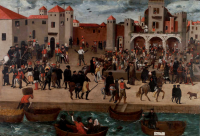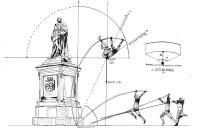politics of memory
Articles tagged with politics of memory
Tag Archive
- Acarte
- African Americans
- African cinema
- african studies
- Agricultura
- Alternative
- Andanças
- Ângela Ferreira
- annett stenzel
- antiracism
- António Alonso
- artist
- asian workers
- atafona
- Ateler Mutanba
- audre lorde
- Ayres de Magalhães
- Batida
- Bayreuth
- bell hooks
- Cacau
- Cartum
- ccd
- citizenship
- city
- economy
- eleições
- ethnicity pay gap
- Exhibition
- expression
- Faustin Linyekula
- Fernando Pessoa
- Festa do Avante
- films
- Flávia Gusmão
- fleeing
- Geo-archaeological research
- geometry
- geração 80
- Germano de Almeida
- Goli Guerreiro
- Guinea Conakry
- hip hop
- História dos Descobrimentos e da Expansão
- holocaust
- humanity
- humor
- Ícaro Lira
- Iva Pinhel Évora
- luanda
- Mão Morta
- mapa
- maputo
- Marielle
- martin Luther king jr
- Matthias De Groof
- mc k
- Michel Figueiredo
- migrations
- Mindelo
- Modernity
- Negritude
- Neo-Animism
- nicknames
- nominals
- O que temos a ver com isto? O papel político das organizações culturais
- our lady of the chinese shop
- paisagem
- Parangolé
- Pedro Neves Marques
- poetry
- Portuguese Colonialism
- projeto
- Rachel Malaika
- representação
- representações
- restitution
- revolution
- Roberto Conduru
- rock art
- S.Tomé
- Saidiya Hartman
- São Tomé and Príncipe
- SARS
- Sérgio Afonso
- space
- Steve McQueen
- Stone
- subjectividade
- tabu
- tailors
- theatre
- theo gould
- trauma
- Turia El Glaoui
- Viriato da Cruz
- water
- welket bungué
- “home languages”
- “Pessoa
 Today, we are learning that invisibility can shun and silence but cannot extinguish. And yes, colonialism can be unlearned; but to do so, it must first be confronted. Colonial amnesia is a political disease – and one for which we have yet to find a cure. Unlike the words uttered by Bruno Candé’s murderer, there are no more senzalas to return to. But, aligned with the theme of reckoning that brought us here today, to unlearn and decolonize, the past must be confronted. One way to start, would entail acknowledging the intersectionality of race-making and forge a vision of collective life not ruled by marked hierarchies.
Today, we are learning that invisibility can shun and silence but cannot extinguish. And yes, colonialism can be unlearned; but to do so, it must first be confronted. Colonial amnesia is a political disease – and one for which we have yet to find a cure. Unlike the words uttered by Bruno Candé’s murderer, there are no more senzalas to return to. But, aligned with the theme of reckoning that brought us here today, to unlearn and decolonize, the past must be confronted. One way to start, would entail acknowledging the intersectionality of race-making and forge a vision of collective life not ruled by marked hierarchies.  One of the most important discoveries to which the museum of the “Discoveries” could lead would, thus, be the perception that the uses of language are not innocent and the grammar of memory has always much more to do with the present than with the past – the perception, in short, that, in the whole controversy, what is at stake is not simply what we were, but, rather, what we are and, above all, what we want to be.
One of the most important discoveries to which the museum of the “Discoveries” could lead would, thus, be the perception that the uses of language are not innocent and the grammar of memory has always much more to do with the present than with the past – the perception, in short, that, in the whole controversy, what is at stake is not simply what we were, but, rather, what we are and, above all, what we want to be.  With what significance do local and national public authorities in today’s Europe now want to include another narrative, not just the colonial narrative, in their official discourse about the past? Such a desire is clear in moments such as the Brussels municipality’s unanimous decision about Lumumba Square. That is, who has the responsibility to decide about how memories of colonialism should be brought forward in a Europe that is itself the child of colonialism? In other words, what does it mean that voices and visions of Europeans of African descent are taken into account in discourses about colonial legacy by a Europe that has struggled to recognize its own traumas and blind-spots?
With what significance do local and national public authorities in today’s Europe now want to include another narrative, not just the colonial narrative, in their official discourse about the past? Such a desire is clear in moments such as the Brussels municipality’s unanimous decision about Lumumba Square. That is, who has the responsibility to decide about how memories of colonialism should be brought forward in a Europe that is itself the child of colonialism? In other words, what does it mean that voices and visions of Europeans of African descent are taken into account in discourses about colonial legacy by a Europe that has struggled to recognize its own traumas and blind-spots? 